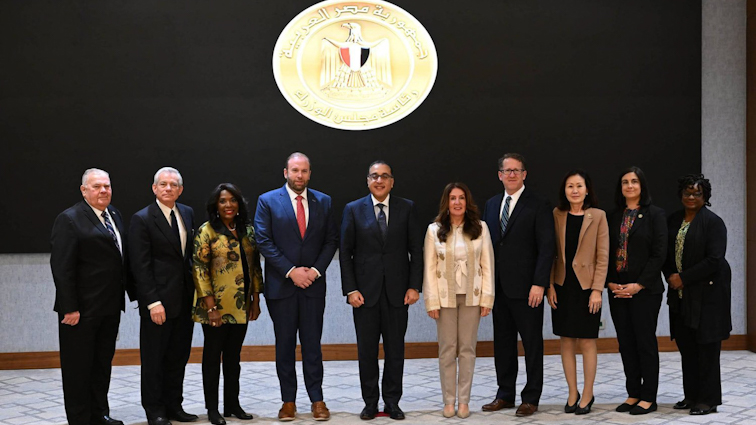Egyptian Prime Minister Mostafa Madbouly said Monday that his country is “bearing the greatest damage from the conflict in the Red Sea region,” which has caused Suez Canal revenues to fall by more than 50 percent.
Madbouly received a number of members of the US House of Representatives’ Ways and Resources Committee, at the government headquarters in the New Administrative Capital, representatives of the Republican and Democratic parties, headed by Jason Smith, chairman of the committee.
According to a statement published by the Egyptian Presidency of the Council of Ministers on its Facebook page, the meeting focused on the challenges and opportunities facing the Egyptian economy, as well as the developments in the Gaza Strip, and the tragic effects of the war on the people of the Strip.
The Israeli war on Gaza, which erupted on October 7, exacerbated Egypt’s economic crisis, as tourism expectations fell, and Suez Canal revenues fell after attacks by the Houthis in Yemen on commercial ships in the Red Sea.
The Egyptian Prime Minister stressed “the imperative of reaching an immediate ceasefire in the Gaza Strip, and the need to increase the access of humanitarian aid,” stressing that “Egypt is doing its best to reach an immediate ceasefire.”
Madbouly expressed Egypt’s readiness to continue close consultation with the US administration on various aspects of the crisis, based on a common vision of the inevitability of reaching a just and lasting solution to the Palestinian issue based on the two-state solution, and supporting the legitimate rights of the Palestinian people, foremost of which is their right to self-determination, and the independence of their state on the lines of the fourth of June 1967 with East Jerusalem as its capital.
During the meeting, the Prime Minister and US lawmakers discussed a number of important questions from US lawmakers about the performance of the Egyptian economy, ways to support certain areas, such as energy and green hydrogen, cooperation in the field of food security between Egypt and the United States, and questions about the Egyptian experience in reclamation of desert lands, rationalization of water use, and cooperation in the field of education.
Morocco and Egypt compete for the bronze medal at the Paris Olympics
